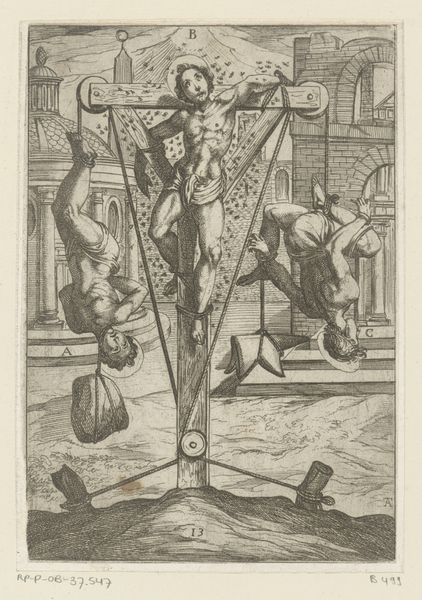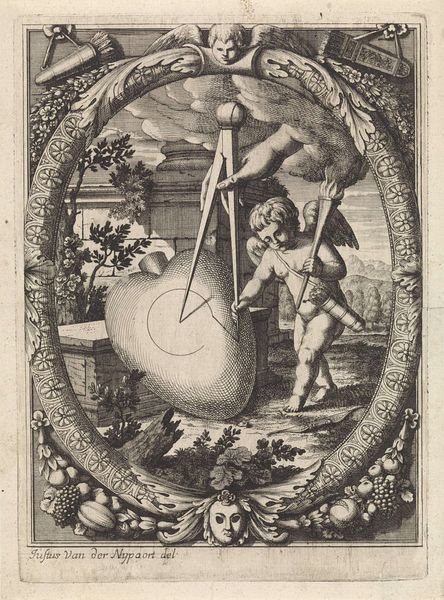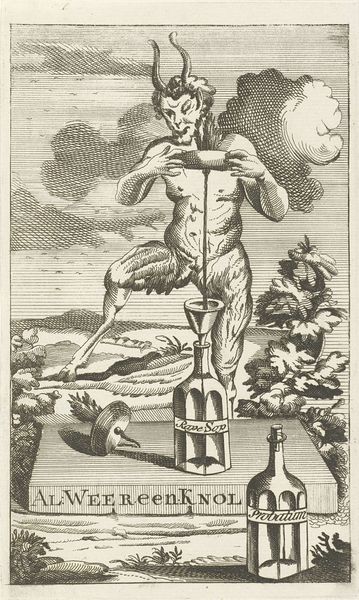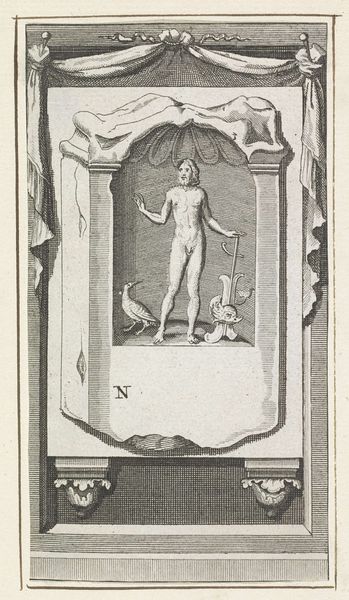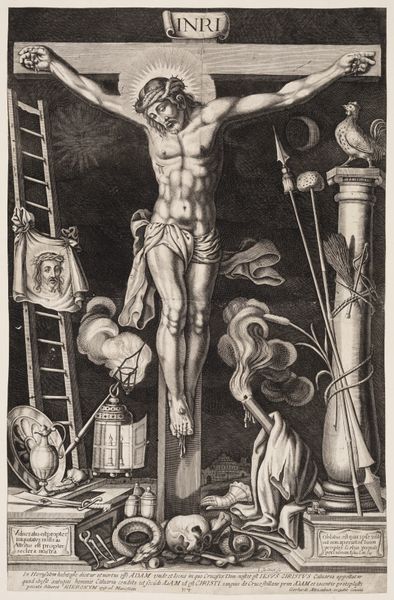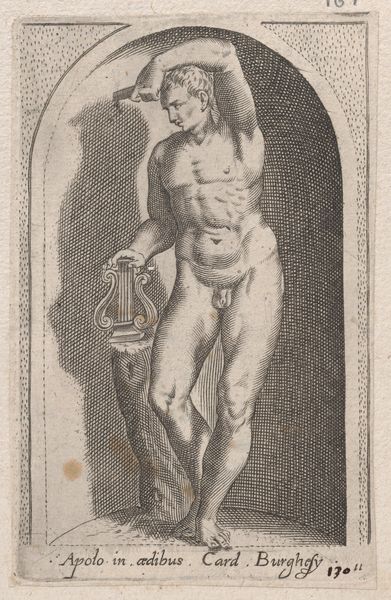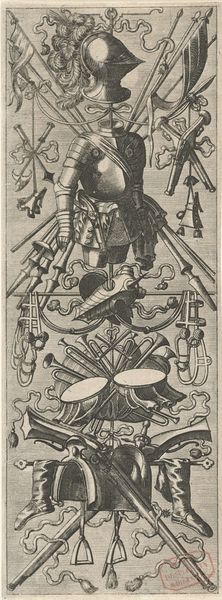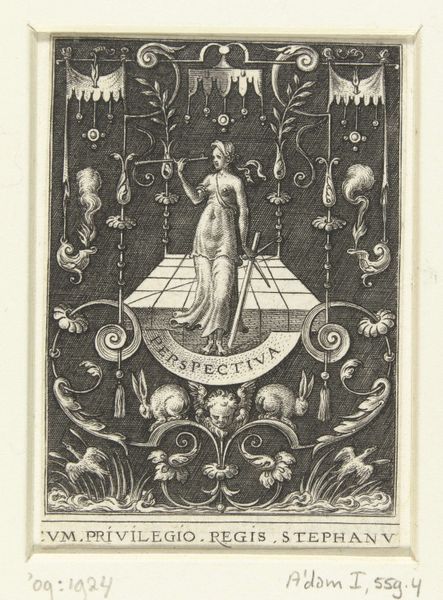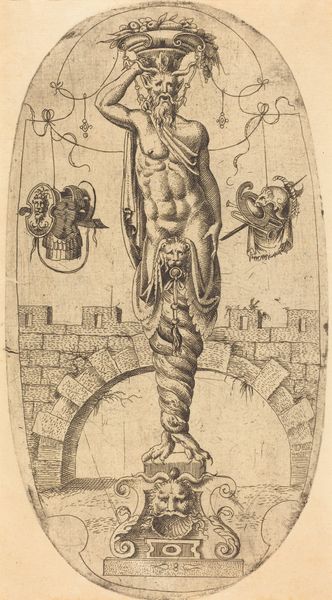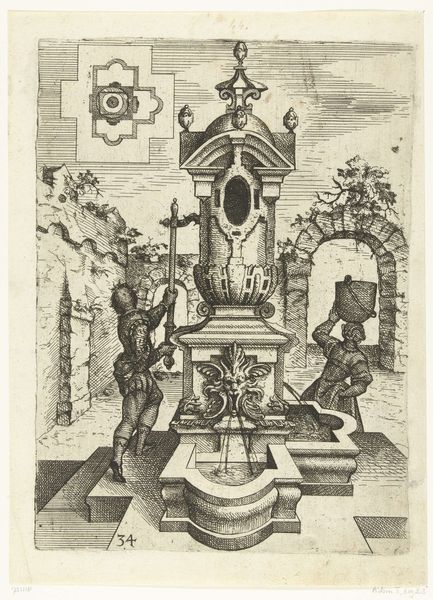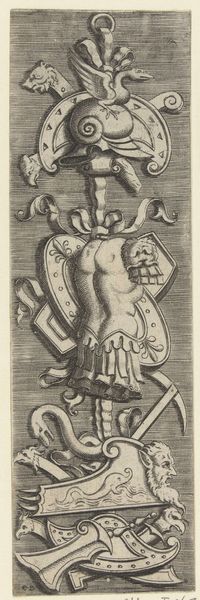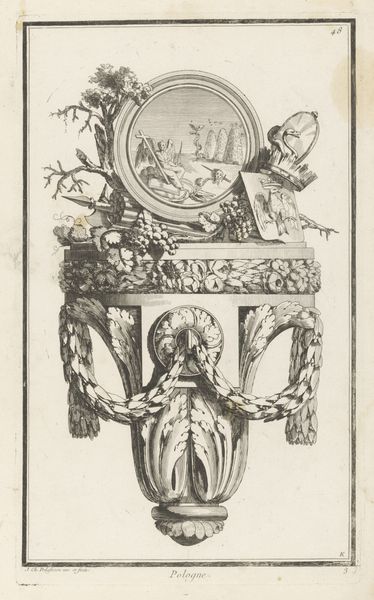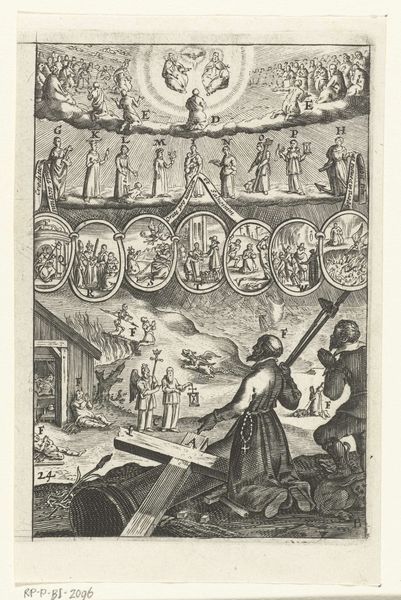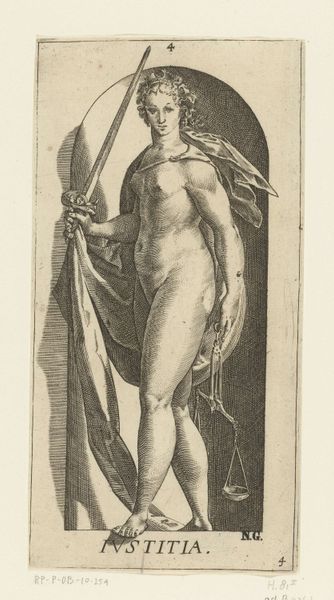
Dimensions: height 132 mm, width 78 mm
Copyright: Rijks Museum: Open Domain
This engraving, created around the late 16th or early 17th century by Wierix, presents a complex scene rendered in meticulous detail. The composition is dominated by symbolic objects arranged around a central heart shape, creating a visually rich, almost overwhelming experience. The stark black lines carve out a scene rife with religious symbolism. At the top, Christ hangs on the cross, framed by instruments of his passion, but below this scene of suffering lies an opened heart, itself containing an allegorical representation of the soul within the tomb. This heart serves as a focal point, mediating between the earthly realm of Christ's crucifixion and the interior world of faith. Wierix employs a structural approach by layering symbols – the rooster, the column, the ladder, the lance – to create a dense network of meanings. The heart, as both a physical and metaphorical space, destabilizes traditional notions of the sacred by suggesting a personal, internalized relationship with divinity. It emphasizes the introspective and emotional dimensions of religious experience.
Comments
No comments
Be the first to comment and join the conversation on the ultimate creative platform.
